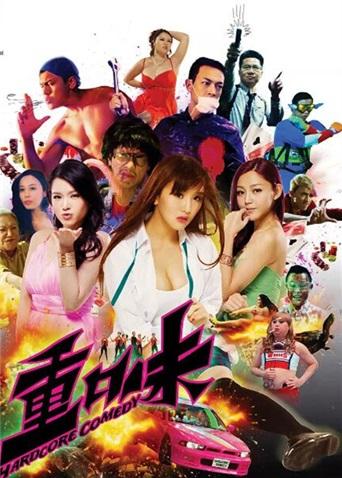20 岁的林森是女大学生,午夜父母经营诊所,午夜母亲因牵涉医疗事故必须向病人赔偿;她为了帮助母亲筹款赔偿,化名“小雨”,瞒着家人偷偷去赚钱。林森跟男友参加聚会时,感到乳房胀痛,发现自己怀孕了。她将这事隐瞒男友,并说服母亲和索偿的病人,让她化名“银芳”将孩子生下来,代替金钱作赔偿 。林森怀孕快十个月,即将临盆;这时春节已临近,疫情爆发,林森在家隔离时,男友突然来找她,没想到他的要求竟是……
20 岁的林森是女大学生,午夜父母经营诊所,午夜母亲因牵涉医疗事故必须向病人赔偿;她为了帮助母亲筹款赔偿,化名“小雨”,瞒着家人偷偷去赚钱。林森跟男友参加聚会时,感到乳房胀痛,发现自己怀孕了。她将这事隐瞒男友,并说服母亲和索偿的病人,让她化名“银芳”将孩子生下来,代替金钱作赔偿 。林森怀孕快十个月,即将临盆;这时春节已临近,疫情爆发,林森在家隔离时,男友突然来找她,没想到他的要求竟是……

回复 :肥胖、粗俗而不失善良的50多岁男人基曼(杰拉尔·德帕迪约 Gérard Depardieu 饰)住在母亲花园旁的房车里,平时打理菜园,和朋友们泡小酒吧,时而和年轻女友安妮特(索菲·吉耶曼 Gisèle Casadesus 饰)在小窝里浪漫温存,过着平静的生活。然而,他的内心却有着不为人知的脆弱和苦楚,母亲在不想要他的情况下怀上了他,从来不知道父亲是谁;老师因为他的愚笨嘲弄;哥们儿喜欢他却又常常嘲笑他。女友想要个孩子,他却因自卑一直不肯答应,导致两人关系紧张。有一天,基曼在公园里遇到了一边养着鸽子一边在大声读小说章节的玛格丽特(吉赛勒·卡扎德絮 Gisèle Casadesus 饰),他荒芜的脑袋里开始萌芽。知识渊博的玛格丽特是一个退休的农艺学家,几乎花了她一生的时间用来周游世界和阅读文学作品。从此,基曼把午后的时间交给了玛格丽特的阅读......
回复 :在时代并不明朗的未来,少女莉莉驾车行驶在野外,当时似乎正在进行着一场两性间的残酷战争。为了躲避男人的包围攻击,莉莉弃车而逃,向更深的野外走去。她穿过荒凉的原野,来到一间诡异的巨宅之中。屋主是个能和动物交谈的老太婆,而莉莉也居然能够听懂动物的话,屋子里还有一只神秘的独角兽。莉莉在屋外遇到一对乱伦的兄妹,后来又和一群赤裸的小孩子共同播种和游戏。战争越来越近了,大家一起狂欢式地追逐。大屋里,一只仿佛是从画里飞出的大鹰带着恐惧和神秘骚扰着几个人,最后被那对兄妹一剑砍死。老太婆终于死去了,莉莉把自己的乳房献给了独角兽。这是一部寓意不明的神秘主义色彩的影片,仿佛是在描述另一个世界上发生的故事。这样的电影创作手段来自超现实主义的“自动书写”,就如同当年布努埃尔和达利创作《一条叫安达鲁的狗》一样。马勒虽然自己把这部影片的创作过程视为愉快的回忆,但他也很难把它称为自己的“佳作”。同样,各路影评家也对这部难以归类,难以判断高下的影片讳莫如深,很少进行深入探讨,也不愿轻易予以否定。
回复 :本·普拉特(《致埃文·汉森》)、妮娜·杜波夫、Mena Massoud(《阿拉丁》)和戴米恩·刘易斯将主演新片《主宰这座城》(Run This Town) , Ricky Tollman编写剧本,并首执导筒。讲述一个年轻记者(普拉特)急于证明自己,他发现了一桩丑闻,涉及到一名浮华的、不可预测的政客(刘易斯),政客的助手们(杜波夫和Massoud)试图牵制住他们的老板,为保住工作而进行秘密行动。 Randy Manis(《总统杀机》《杀死汝爱》)、 Jonathan Bronfman(《帕蒂蛋糕$》《星图》)制片。


